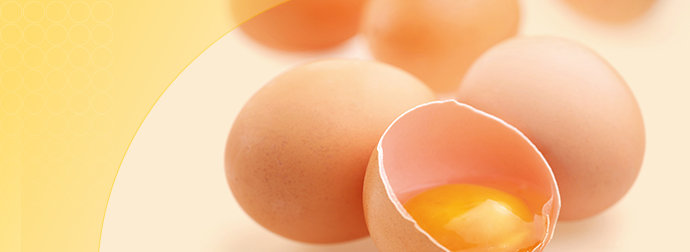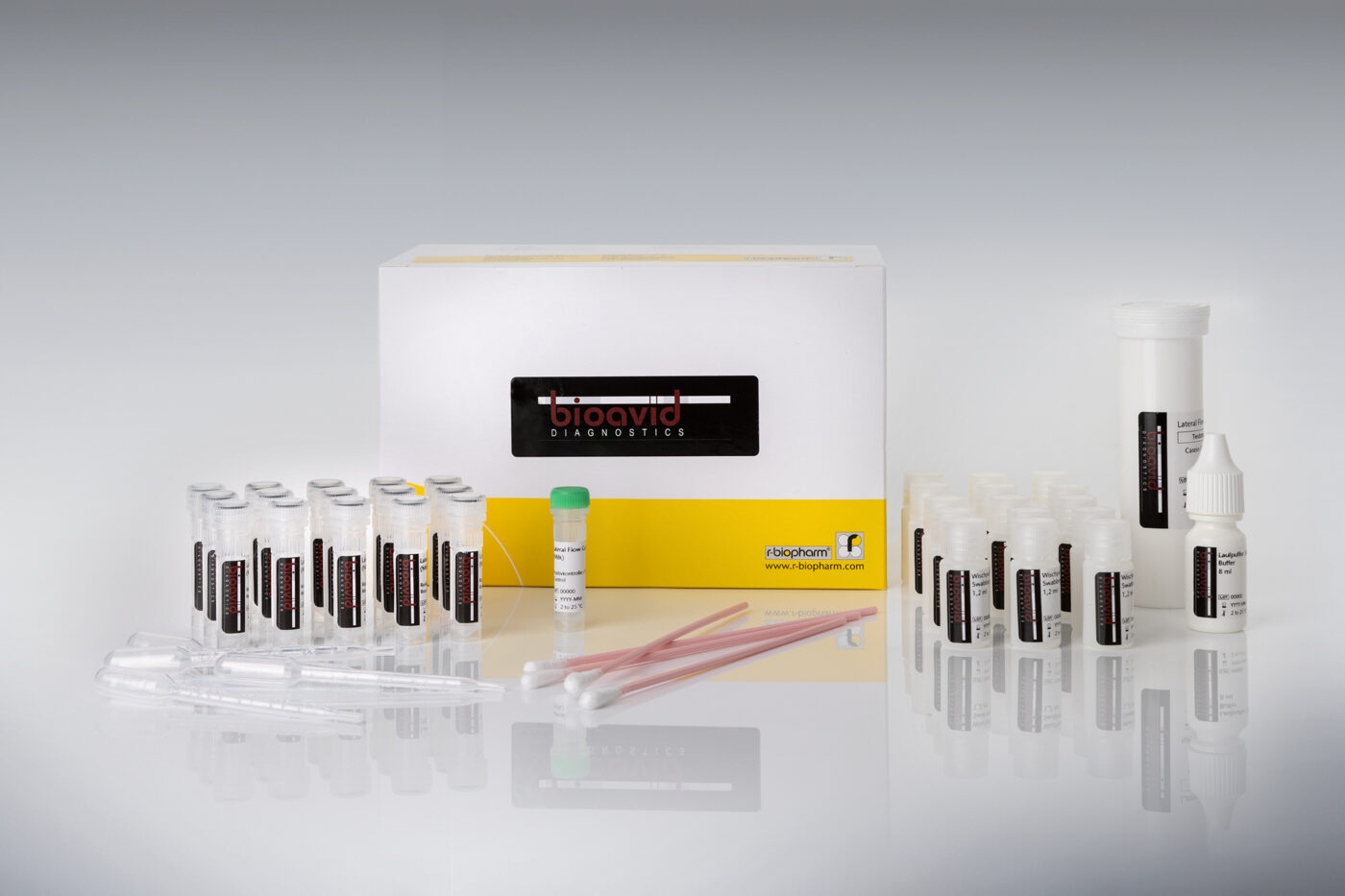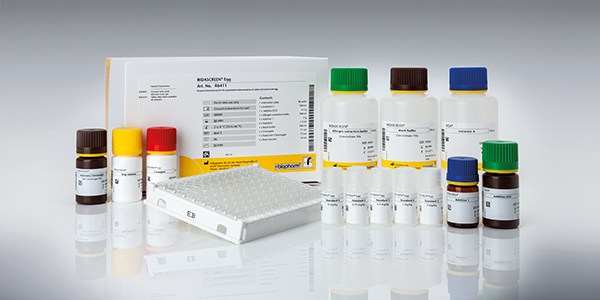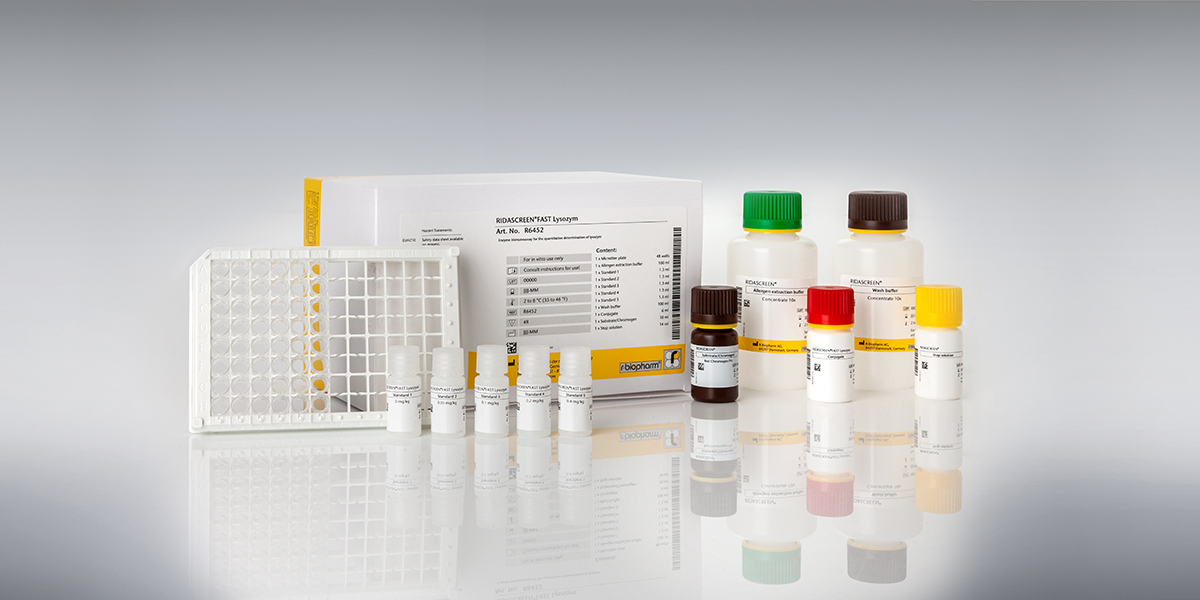
Recent news in Food & Feed Analysis
- Home
- /
- 8 useful tips for...
8 useful tips for the perfect Easter egg

Easter is just around the corner and thus, one particular type of food is in focus again: the Easter egg. We have put together 8 tips concerning eggs to ensure successful Easter holidays.
1. How to store eggs properly
Eggs are sensitive foods which can spoil quickly and should therefore be stored in the refrigerator. In addition, please take notice of the best-before date as after expiration, eggs should be used only if heated thoroughly. Tip: Eggs have a longer shelf life if they are stored with the pointed end showing downwards.
2. How can you tell if an egg is safe to eat?
You can easily test the freshness of a raw egg by placing it in a glass of water. A fresh egg will remain on the ground, while a stale one will move upwards. If the egg is already boiled, you should rely on your senses: An acrid odour and brownish discolouration are signs that the egg has spoiled. However, salmonella are not visible with the naked eye and they can occur even in fresh eggs. In order to protect yourself against salmonella infection, you should boil eggs for at least 7 minutes. In food production and catering, eggs should be tested thoroughly for salmonella and other potential contaminations. For example, microbial contamination can be quickly detected on the basis of indicator acids (lactic acid, succinic acid, hydroxybutyric acid).
3. Working with raw eggs for decorating
If you blow out eggs for crafting and decorating, you should take care that you don’t come in direct contact with the egg white or yolk. Bacteria could get into the egg mass via hands and mouth, and spoil it. However, you don’t have to generally throw away egg white and yolk from blown-out eggs. The egg mass can be stored in a covered bowl in the fridge for two or three days.
4. How to dye eggs
When you buy coloured eggs in the supermarket, the dye used is often not declared on the packaging. Those who want to play it safe can easily dye their Easter eggs themselves – completely naturally – all you need for this is vegetables. Spinach gives the egg a green colour, beetroot juice dyes it red. An orange colour is obtained by carrots, a yellow colour by curcuma. Put the respective ingredient in a pot with water, let it boil away briefly, then add the eggs. Tip: Best for dyeing are eggs with a white smooth eggshell. A drop of vinegar in cooking water optimizes absorbing of the colour.
5. How to boil eggs
Boil the egg, remove it and put it in cold water: what could go wrong there? Well, cold water is not always indicated. Indeed, only soft-boiled eggs, which are intended to be eaten immediately, should be put in cold water. Putting hard-boiled eggs in cold water will shorten the shelf life: While hard-boiled eggs generally have a shelf life of two weeks or longer, hard-boiled eggs which were put in cold water should only be stored for two days. Moreover, via tap water, bacteria might get through fine cracks in the eggshell into the egg.
6. Eating eggs: How many eggs are healthy?
Eggs contain many valuable nutrients such as vitamins, minerals and amino acids. However, eggs also contain high amounts of cholesterol and fat. German Association for Nutrition (DGE) therefore recommends consuming no more than 2 or 3 eggs per week.
7. How to prepare eggs – in the traditional German way
In many countries, egg dishes are somehow connected to Easter. A traditional Easter dish in the German region of Hesse (the home of R-Biopharm AG) is called „eggs with green sauce“. The green sauce consists of crème fraîche and 7 different herbs: borage, chervil, parsley, salad burnet, sorrel, chives and cress. The sauce is served with boiled potatoes and boiled eggs.
8. Egg-free Easter: Alternatives for people allergic to eggs
Egg allergy is widespread particularly in small children. However, those who have to avoid eggs can resort to some tasty alternatives. Eggs can be easily replaced by applesauce or bananas in Easter cakes or muffins. Ground linseed or soy flour is a suitable egg replacer for hearty pastry and bread.



